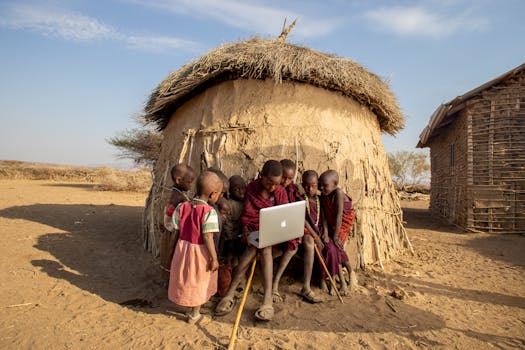
Empowering Communities: The Impact of Fiber Companies on Rural Connectivity in Africa
Fiber companies are playing a crucial role in bridging the digital divide in rural Africa, where internet access is limited and often unreliable. The lack of connectivity in these areas has hindered economic growth, education, and healthcare, making it essential for fiber companies to step in and provide reliable and fast internet access.
The State of Rural Connectivity in Africa
Africa is home to some of the most digitally disconnected communities in the world. According to the International Telecommunication Union (ITU), in 2020, only 22% of the population in rural Africa had access to the internet, compared to 62% in urban areas. This disparity is largely due to the lack of infrastructure, with many rural areas lacking the fiber optic cables necessary for high-speed internet.
The consequences of this digital divide are far-reaching. Without access to the internet, rural communities are often cut off from economic opportunities, unable to access online markets, and limited in their ability to communicate with the rest of the world. Education and healthcare also suffer, as online resources and telemedicine services are unavailable.
The Role of Fiber Companies in Rural Africa
Fiber companies are working to address the digital divide in rural Africa by deploying fiber optic cables and providing internet access to underserved communities. These companies are using innovative technologies, such as aerial fiber deployment and solar-powered networks, to reach remote areas and provide fast and reliable internet access.
One example of a fiber company making a significant impact in rural Africa is Liquid Telecom, which has deployed over 70,000 kilometers of fiber optic cable across the continent. The company’s network spans 13 countries and provides internet access to over 40 million people. Other companies, such as MTN and Vodacom, are also investing heavily in fiber infrastructure, with a focus on connecting rural communities.
The impact of these efforts is being felt across the continent. In Rwanda, for example, the government has partnered with fiber companies to deploy a national fiber backbone, providing internet access to over 90% of the population. Similar initiatives are underway in other countries, including Kenya, Ghana, and South Africa.
Empowering Communities through Internet Access
The provision of internet access by fiber companies is having a transformative impact on rural communities in Africa. With access to the internet, communities are able to connect with the rest of the world, access online resources and services, and participate in the digital economy.
In education, the internet is providing new opportunities for students to access online learning resources, including digital textbooks, online courses, and educational apps. Healthcare is also being improved, as telemedicine services and online medical resources become available.
Internet access is also enabling rural communities to participate in the digital economy, with online markets and e-commerce platforms providing new opportunities for entrepreneurs and small businesses. In Kenya, for example, the online marketplace Jumia has enabled thousands of small businesses to sell their products online, reaching a wider market and increasing their incomes.
Challenges and Opportunities
While the deployment of fiber optic cables and provision of internet access is a significant step forward, there are still challenges to be overcome. The cost of internet access remains a barrier for many rural communities, and the lack of digital literacy and online skills is limiting the impact of internet access.
However, there are also opportunities for innovation and growth. The use of mobile money and other digital financial services is on the rise, providing new opportunities for financial inclusion and economic growth. The development of local content and online services is also underway, with many African companies creating digital products and services tailored to local needs.




